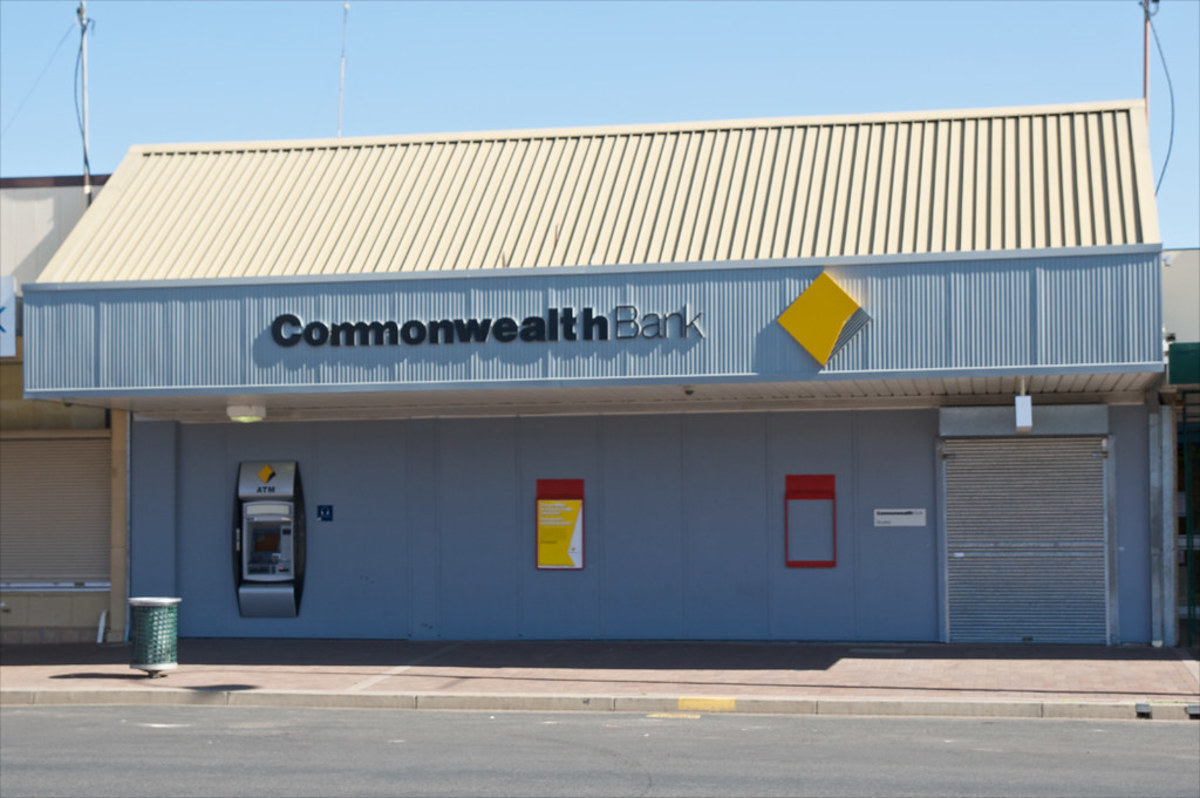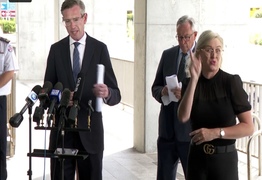No sign of saviour for regional bank branches
Laura Williams
23 December 2021, 8:11 PM
 Bourke's Commonwealth Bank was one of 90 branches across Australia to reduce its hours, as well as Cobar, Condobolin, Coonabarabran, Coonamble, Nyngan and Warren. (Image: Flickr)
Bourke's Commonwealth Bank was one of 90 branches across Australia to reduce its hours, as well as Cobar, Condobolin, Coonabarabran, Coonamble, Nyngan and Warren. (Image: Flickr)Two months after the Regional Banking Taskforce was launched to investigate the impacts of branch closures and reduced services on regional communities, the opportunity for comment by those directly affected is over and the wait begins to see what strategies are on the table to shore up banking services for small country towns.
After a four week consultation period where groups and individuals could present their concerns and perspectives on the reduction of bank services and hours as well as suggestions for future models of servce, submissions have closed.
Co-chair of the Regional Banking Taskforce Perin Davey said the public response shows the seriousness of local branches closing across the country.
“It has been overwhelming the amount of phone calls, emails and letters from people right across the country, telling their story of the impact branch closures had had on them and their local community,” Senator Davey said.
Despite the overwhelming evidence from submissions however, there is little hope among the community that banking services will ever return to how they once were, or even remain as they are.
Bourke business owner Nancy Randall said that across town services have been reduced, with their usual bank Westpac having closed their doors and instead operating out of the local post office.
“We really don’t want to be doing our banking at the post office where we have all of these people queuing up behind,” Ms Randall said.
Despite her fears of privacy being lost while conducting the banking of two main street businesses she operates, Senator Davey reported in October that this model of operating is being considered as a potential alternative to bank branches.
“It could be a combined model where banks work together with a third-party provider or there could be mobile alternatives - all the options are on the table,” Senator Davey said.
In the same interview, Senator Davey said that the taskforce will host public roundtables for locals to engage with the taskforce members and discuss the ongoing issues. The dates and locations for these roundtables, however, went largely unpublicised, making it difficult for the public to attend.
The submissions closed on 18 December and Senator Davey was unavailable for interview prior to Christmas.
Ms Randall said that while she has considered changing banks, there’s nothing to say that the other local branches won’t move in the same direction, with NAB reducing their hours to four days a week and the Commonwealth Bank closing hours to 1:30 in the afternoon.
“It’s looking a bit dire for the town,” Ms Randall said.
The Australian Small Business and Family Enterprise Ombudsman Bruce Billson said that bank branch closures can have a ripple effect on the wider community.
“Branch closures increase small business administrative costs, the level of risk for business owners, and have a community wide economic impact caused by business patronage moving away,” Mr Billson said.
One of the issues being investigated by the taskforce is how limited banking services in a community may affect the value of a local business going forward.
“For some small businesses, the loss of a local bank branch may even cause them to look for services outside the regulated financial system. That is a bad outcome and there is more that can be done to support small businesses when a bank branch closes,” Mr Bilson said.
Senator Davey explained many branches close due to people visiting it less than a couple of times per year.
“In a small town, that could mean only a dozen people visit a branch each week,” Senator Davey said.,
Already, Ms Randall has not only had to compromise the privacy and safety of her businesses’ finances, but has been forced to replace her daily banking activity for both businesses with four times each week.
The Taskforce members included major banks – ANZ; Commonwealth Bank of Australia; National Australia Bank; Westpac; Bendigo and Adelaide Bank; Bank of Queensland - plus peak bodies – the Australian Banking Association, the Customer Owned Banking Association; the Council of Small Business Organisations Australia; the Australian Chamber of Commerce and Industry - along with Australia Post and The Australian Local Government Association.
Ms Davey told the Western Plains App that the representatives from the Council of Small Business Organisations and the Local Government Association would be regional residents themselves, although it was important that community members in areas impacted by bank closures also had their say.
The Department of Treasury will now analyse the hundreds of submissions, which will be made public on the taskforce’s website, and prepare a report with recommendations on how best to deliver banking services to regional communities.

